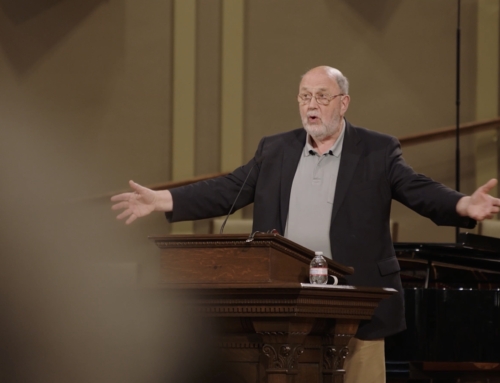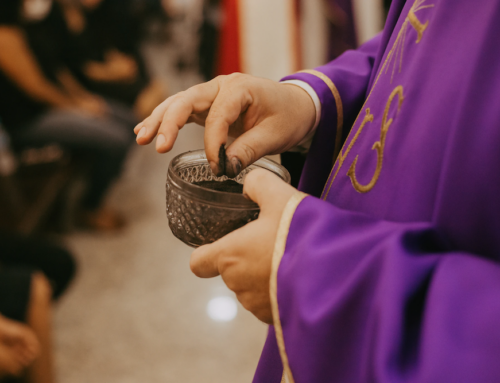In Matthew 18:20, Jesus promises to be in our midst wherever two or three are gathered. I can think of no better way to experience His presence than when we come together to read, study, and ponder Scripture.
That abstract thought became crystallized reality when some members of Mountain Christian Church joined together in small groups to study the life of the apostle Paul in one of the newly launched small group studies offered by N. T. Wright Online called Paul: A Biography.
I had completed the same study on my own some weeks before and, as is true with everything Prof. Wright teaches, received not only first class instruction but affirmation of past studies, challenges to some beliefs I hadn’t thought through clearly, and even an occasional kick in the seat of the pants as Prof. Wright’s words helped me apply what I was being taught to my personal life and witness.
But as good and helpful as my individual study of Paul: A Biography had been, nothing could have prepared me for how much more I gained from the same study when I took the course with others.
Now of course small group life is more than reading a book or taking a course together. When we gather, we are in a sense living life together, exploring hopes and dreams, loving and being loved, celebrating and being celebrated, serving and being served, weeping and weeping with, and encouraging and being encouraged. We laugh, we love, we pray… and of course we learn. And learn we did with this course!
At Mountain we divided into two small groups: a men’s morning breakfast group of ten and a co-ed evening group of twenty. As group facilitator, I had the blessing of participating in both.
The Men’s Breakfast Group
Meeting in a restaurant for breakfast has a different dynamic than that of a small group meeting in someone’s home. The men’s group committed to preparation and study prior to each meeting, either by watching the videos and taking notes or by reading the relevant sections in Prof. Wright’s book Paul: A Biography. Some men did both.
We would talk generally about the morning’s lesson while waiting to be served, many times relating the lesson to the sermon we heard the previous weekend or to events happening in our lives. This is where we really got to know each other’s backgrounds, day-to-day lives, and hopes and dreams.
For example, one morning’s lesson included the huge row between Paul and Barnabas (Acts 15:36-41), and someone would offer, ‘Yeah, I can relate. I remember when I did that…’ Or, in discussing what Paul’s contemporaries thought the Messiah would be like, a man might say, ‘Oh, they wanted someone who would “Make Israel Great Again!”‘ It was comments like these that brought the lesson to life and made abstract principles ‘click’.
After eating we’d go through the discussion questions that come with each lecture. When taking the course solo, I might quickly answer the questions just to check a box, but when you’re in a small group, you can’t get away with that! We challenged each other to go deeper than mere surface responses, and the questions provided were perfect for doing that, especially those in the Application section.
Just this morning, one of the application questions was, ‘Tell the group about a time that you felt the Holy Spirit say “no” to something and what was the outcome of your obedience to that leading?’.
The guys were a little slow to respond until one man said, ‘You’re trying to think of “big” things. Try thinking of “little” things, everyday things’. And then we were off, with thoughts and ideas bouncing around among us, taking the discussion deeper into our day-to-day lives.
The Evening Co-ed Group
With more members participating, the evening group was wonderfully diverse, with some who had been following Jesus for decades and some who were newly baptized; some who were in seminary or Bible college and some who were new to studying Scripture; some who were discerning a call to ordained ministry and some who knew their calling was to lay ministry. All this made for thought provoking and exciting discussions.
Though most group members had viewed the lesson’s video or read in Paul: A Biography before we met, we still screened the lesson’s video to focus us on the topics for the evening as well as to give those who had not had a chance to preview the video a chance to do so. (For the latter, I prepared ‘follow along’ notes so that the viewer’s attention could focus on the video instead of frantic note taking.)
The questions that accompany the course make the wise suggestion to begin the evening’s discussion with ‘initial thoughts, ideas, and questions that come to mind after hearing what Prof. Wright taught’. And what a wide variety of questions and ideas this group generated!
For example, in Lesson 9 which covers the time Paul and Silas were in the Philippian jail (Acts 16:11-40), we decided to apply what Prof. Wright had taught us about what made Paul ‘tick’ to all the situations Paul found himself in in this lesson. Did Paul cast out the spirit from the young slave girl more out of exasperation than anything else? What was Paul thinking while singing hymns in prison at midnight? When the earthquake struck and Paul’s chains fell off, was he torn between running away and staying put? And even after the jailer and his family had come to faith and were baptized, Paul still hadn’t left town; he was still there!
We also explored the depth of words that we usually flatten out into ‘church’ words, like faith, salvation, and righteousness. Prof. Wright guided us to see that faith has connotations of allegiance and loyalty, so we talked about what other things we’ve given allegiance to. Or, the multiple layers and meanings of a word like salvation, perfectly illustrated in the Philippian jail incident, where we saw (1) salvation as physical rescue, (2) Roman ‘salvation’, which had let the Philippian jailer down, and (3) what we call Christian salvation.
Sometimes our self-generated questions and discussions took so much time that we had to omit some of the study’s questions for lack of time. But even then, we tried to reserve time at the end of our 90 minutes for the thought-provoking application questions provided by the study. Even though we might spend the majority of our time getting a peek at the culture of Paul’s day, we always wanted to end by bringing the study’s main points back into the culture of our day.
Why I Think You Will Love These Small Group Courses
One of our evening group members summed up Paul: A Biography this way:
I’m loving this study. I have learned who Paul was within his culture and time as not only an apostle but as a person. I think I’ve failed to think about that much, and it’s inspired me to learn more about each individual apostle and who they were as ordinary men and about the culture they lived in. It gives much more depth to understanding where and how they lived and the struggles they faced.
Other members have told me how what they’ve learned has carried over to their other Bible studies. One man, for example, said, ‘After learning how important unity was to Paul, now every time I read one of his letters, the principle of unity comes through where I had not seen it before’.
Personally, this study has let me see the apostle Paul as a real, human, three-dimensional person, rather than as a cardboard cutout on a Sunday school flannel board display (yes, I’m showing my age!).
And when you study with others in a small group as you live life together, you have not just one teacher but several. And isn’t that how Paul tells us it should be?
‘In [Jesus] the whole building is fitted together, and grows into a holy temple in the Lord. You, too, are being built up together, in him, into a place where God will live by the spirit.’ (Eph. 2:21-22 KNT)
May your studies together enrich your lives as we all are built up together into that temple where the Spirit is pleased to dwell.







